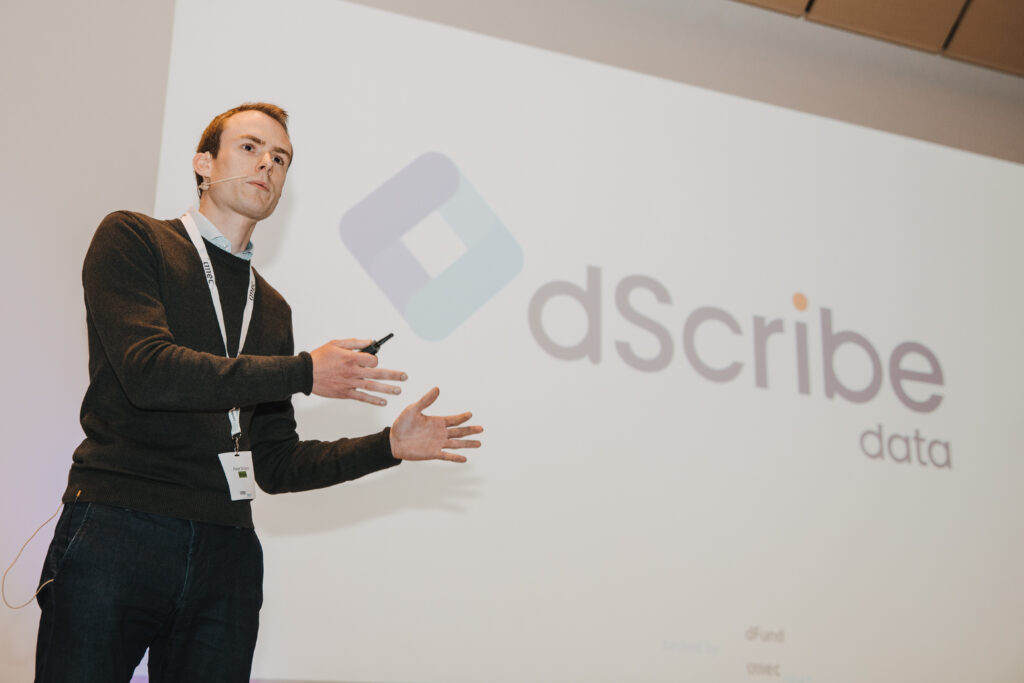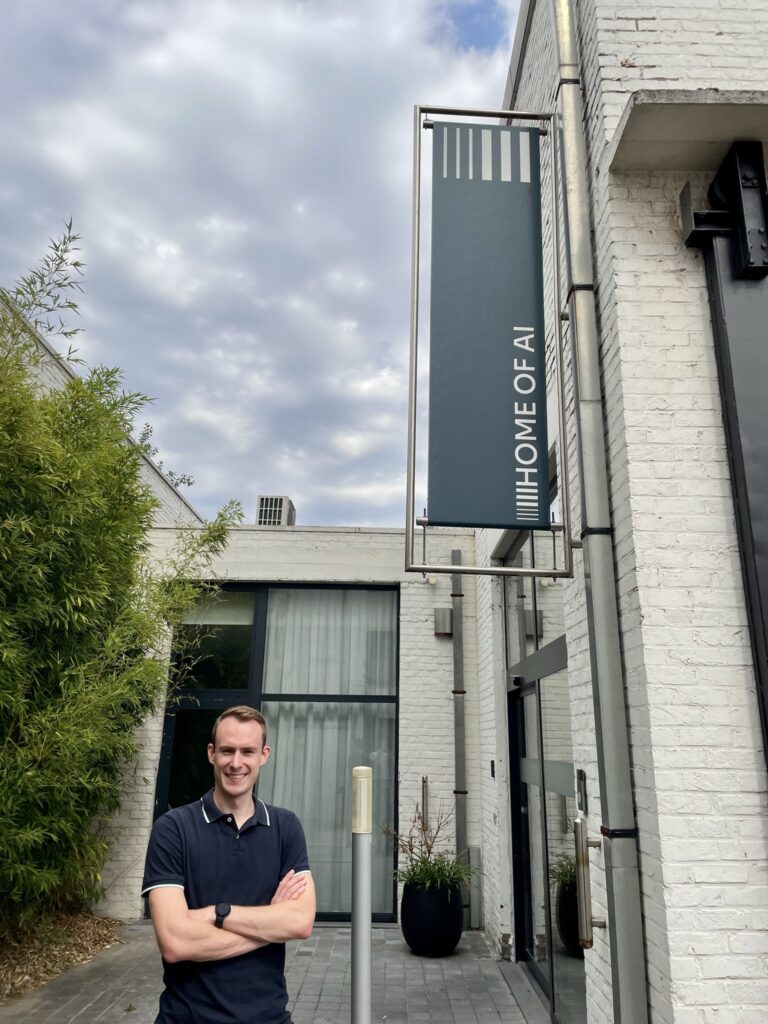
dScribe data is currently a resident in the Home of AI. We interviewed their CEO Pieter Delaere about who they are and what they do.
Pieter: dScribe is a software company that helps companies organise their data. The problem with large and medium-sized companies is that they have so much data spread over different systems that it becomes complicated to find anything.
For example, when a manager asks for net sales figures, she can search for them in her ERP or CRM systems. Usually, she will also have access to a reporting system on top of that with multiple different versions of the ‘sales’ report. The question arises then: which version of that report is most relevant to the manager now?
In addition, we also focus on documentation. I have been a consultant, where I often fiddled with Excel to create lists and definitions. This process is a lot of work and becomes outdated very quickly.
With the dScribe solution, we map all data assets across sources automatically, including as much metadata as is available. We are solving questions like who is working with a report, who built it, what definitions it contains, and so on.
dScribe is now a company of 8 people. We started in July 2021 with five co-founders who all encountered this problem from different backgrounds. Companies tell us they want to embark on advanced AI projects, but they can’t navigate their data; they don’t know what data they can use within the company. And you also have people on the reporting side working on self-service projects sounding the alarm: “oh, we are losing track here”.
Did dScribe data come out of a specific need in the market or more out of personal conviction?
As a consultant, I was often asked, “we have so many reports, and we no longer have an overview; which ones are most valuable and which ones can we archive”. We were then on the services side, and we first looked at whether we could solve that as a kind of project. We also looked at the market to see if there were software solutions we could work with to solve that problem. And there are some, but the challenge we found was that they were all very complex products that took a long time to implement and often required extensive training.
We want to make data more accessible. It’s not about adding another step on top that makes it all more complicated. That was the wake-up call for us to develop something that solves the problem according to our vision. De Watergroep went along quickly, and Barry Callebaut followed suit, so we soon found a demand for it. It was clear that we were on to something. That led to our decision to set up a separate company and market a new solution.
How was it going from being a consultant to setting up your own company?
We’re a spin-out from delaware, who offered us valuable technical support during our initial start-up phase. We also raised capital and extended our network via imec.istart. They were a great help in building a new company, including legal and commercial advice.
You sometimes hear that Belgium does not have a very entrepreneurial climate, but I wouldn’t be so sure about that. If you dare to look around and ask questions, you will find many initiatives where you can get support. One of them is Home of AI, a fantastic concept where many start-ups gather to work around data. It’s a top location where we can work on our product and not worry too much about the office or facilities. These things can make a big difference to a starting company.
Why did you choose to locate your main office in Ghent?
Ghent is a very central and popular location. If you look at the young people and the audience we are trying to reach to come and work with us, they are often developers, and Ghent is an exciting place for that.

Are companies increasingly aware of the value of their data?
When I started my career, it was still very often a dynamic of making a specific report or solution for a client. The client asked the consultant for something, and the consultant developed it. Most of the time, data was handled with technical tools that the customer did not fully understand. In the past five years, I witnessed the broad adoption of self-service analytic tools that made it much easier for the end user to interact with data and compile reports.
Sometimes you also hear the statement that the business landscape in Belgium is conservative in its technological development, and I also have to disagree with that. Many companies dare to be creative and dare to experiment. De Watergroep is one of the most progressive players I have met in the data field. They are very advanced in that area. In addition, the awareness of data governance is also growing and becoming more critical in the business landscape. Large companies have invested a lot in their data governance in the past ten years, and now you see medium size businesses following along.
Can small businesses also use your product?
We mainly serve companies that already do things with a lot of data. The grocery store around the corner will not need us if they can keep track of all their data in one excel file. But for a medium-sized company with a reporting platform or, for example, an ERP system, and you want to better document and use your data, then we become very relevant. In the larger market, you realise that data is valuable and that companies can create more value for themselves. Then we can come in handy and ensure they can use that data and extract value from it.
What are the biggest obstacles for companies/organisations looking for digital transformation?
There are still many different beliefs about data governance. When talking to companies, you often notice they think it will cost them a lot of money and time before they can achieve something with it. But actually, that’s not true. All companies already do data governance, even if it is just a financial controller who tries to keep up with a definition in an excel sheet. Or colleagues who discuss the correct calculation of the net sales figures. That’s all data governance. Everyone who comes into contact with or is documenting data is doing data governance. We try to convince the customer that our job is to make these activities as effortless as possible and centralise all that in one place. It’s not about more work; it’s about making their lives easier to get better results faster.

What advice would you have for a starting tech entrepreneur?
The most practical advice I would give is that if you are looking for an office in Ghent, come to the Home of AI (laughs).
Talk to people. Talk to organisations like imec.istart. Talk to start-ups already well on their way and learn from them. Accept help. Surround yourself with people who want to give you advice because there are more than you might think.
Can you give us a sneak peek of what the future has in store for you?
Our vision remains unchanged: to make data in organizations as easily accessible and understood as possible. We are currently the equivalent of Google + Wikipedia for business data. In the future, a comparison with Netflix or TikTok might be better suited in a model where users log into our platform and get recommendations on what kind of data is relevant for them personally in a given context at a specific time. To that end, artificial intelligence will play an increasingly significant role at dScribe. So we’re going to have an exciting future ahead!